Two Poems
by
Alex Andriesse
Expatriation, Year One
Enemy of the anecdotal, birthplace unseen,
I enjoy a semiprivate movie stardom
in which only the sunglasses remain to me,
the occasional mimosa at brunch.
At thirty-three should the self still be
so frangible? How does one come this far
lacking the raw material needed for
the most basic human discourse?
Unmoored from my wife, at parties, I drift
toward the ben trovato (yes, yes, why not?),
the strangers’ gutturals like music to me.
Hs for Hs. Hs for Gs.
How to account for myself I’ve no idea.
My father was the same. Dead a year,
he still lives at home. He never was,
as my mother would say, “worldly.”
What we wouldn’t give for a second chance,
but at what exactly, and in what sense?
The world as it is demands particulars
independent of experience.
I.M. S.E.S.
It is true, as Pascal said, no man’s
so poor he leaves nothing behind,
but the cases he had in mind
were traditional by comparison:
all my mourning had to be done
between the moment when
your body died and the moment
it was separated into specimen:
no funeral, no burial,
and when they burned you they had to
gather you up: reassemble you
like a king, backward, in primitive times,
when life was wild as the grapevine
my love and I killed a few days later,
hacking at the root, the hanging lines,
keeping them from strangling the cedar.
Two Poems
by
Alex Andriesse
Expatriation, Year One
Enemy of the anecdotal, birthplace unseen,
I enjoy a semiprivate movie stardom
in which only the sunglasses remain to me,
the occasional mimosa at brunch.
At thirty-three should the self still be
so frangible? How does one come this far
lacking the raw material needed for
the most basic human discourse?
Unmoored from my wife, at parties, I drift
toward the ben trovato (yes, yes, why not?),
the strangers’ gutturals like music to me.
Hs for Hs. Hs for Gs.
How to account for myself I’ve no idea.
My father was the same. Dead a year,
he still lives at home. He never was,
as my mother would say, “worldly.”
What we wouldn’t give for a second chance,
but at what exactly, and in what sense?
The world as it is demands particulars
independent of experience.
I.M. S.E.S.
It is true, as Pascal said, no man’s
so poor he leaves nothing behind,
but the cases he had in mind
were traditional by comparison:
all my mourning had to be done
between the moment when
your body died and the moment
it was separated into specimen:
no funeral, no burial,
and when they burned you they had to
gather you up: reassemble you
like a king, backward, in primitive times,
when life was wild as the grapevine
my love and I killed a few days later,
hacking at the root, the hanging lines,
keeping them from strangling the cedar.
Alex Andriesse was born in Iowa in 1985. His prose and poems have appeared in Granta, Prodigal, and 3:AM Magazine. His translations include Roberto Bazlen’s Notes Without a Text (Dalkey Archive Press) and Chateaubriand’s Memoir from Beyond the Grave (NYRB Classics). He lives in the Netherlands.